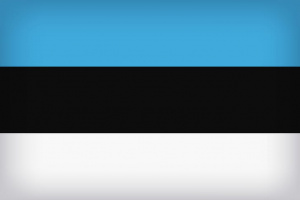Language/Standard-estonian/Grammar/How-to-Use-Have
Hi Standard Estonian learners! 😊
In this lesson, we will learn how to use the verb "have" in Standard Estonian. We will look at the conjugation of the verb, as well as some examples of how it is used in sentences.
Conjugation
The verb "have" is conjugated differently depending on the subject pronoun. Here is a table showing the conjugation of the verb "have" for each subject pronoun:
| Subject Pronoun | Standard Estonian | Pronunciation | English Translation |
|---|---|---|---|
| I | olen | o-len | have |
| You | oled | o-led | have |
| He/She/It | on | on | has |
| We | oleme | o-le-me | have |
| You (plural) | olete | o-le-te | have |
| They | on | on | have |
Examples
Now let's look at some examples of how the verb "have" is used in sentences.
- Person 1: Kas sa oled kodus? (Kahs sah o-led ko-dus?) (Are you at home?)
- Person 2: Jah, ma olen. (Yah, mah o-len.) (Yes, I am.)
- Person 1: Kas teil on lapsi? (Kahs teel on lap-see?) (Do you have children?)
- Person 2: Jah, meil on kaks last. (Yah, meel on kahks last.) (Yes, we have two children.)
- Person 1: Kas ta on sõber? (Kahs tah on soo-ber?) (Does he have a friend?)
- Person 2: Jah, tal on palju sõpru. (Yah, tahl on pahl-yoo soo-pru.) (Yes, he has many friends.)
Practice
Now it's time to practice using the verb "have" in Standard Estonian. Try to create your own sentences using the conjugation table above. Here are some ideas to get you started:
- Ma olen näljane. (Mah o-len nael-yah-ne.) (I am hungry.)
- Te olete väsinud. (Te o-le-te vae-see-nud.) (You are tired.)
- Nad on haiged. (Nahd on hi-ged.) (They are sick.)
- Meil on kolm koera. (Meel on kolm ko-e-rah.) (We have three dogs.)
- Tal on üks vana auto. (Tahl on yuks vah-nah ou-toh.) (He has one old car.)
➡ If you have any questions, please ask them in the comments section below.
➡ Feel free to edit this wiki page if you think it can be improved. 😎

